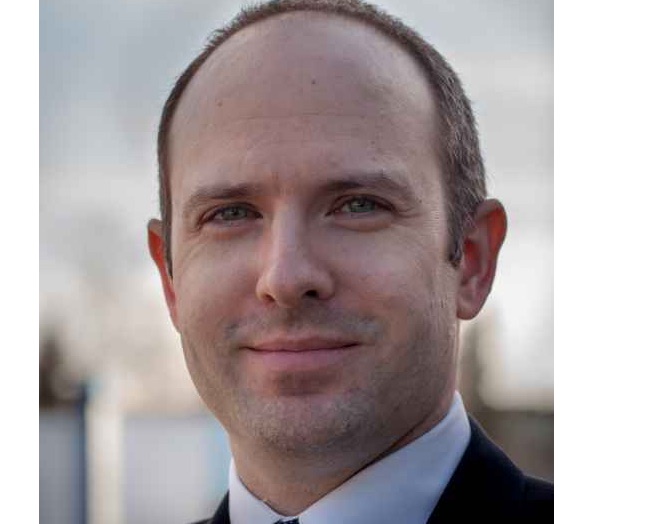Col. Allen West, former congressman from Florida and candidate for Texas governor, gave a captivating speech to over 160 Republicans in Fairbanks on Friday night, and many came away saying that West has the qualities of President Ronald Reagan, in that he is both a patriot and a great communicator.
West started his remarks by humorously pushing back against all the jokes he had heard in Alaska about the small state of Texas. His answer to Alaska pride? Belting out the Texas State Song, “Texas, Our Texas.” In full baritone.
West touched on the themes of what makes America great and the ways that the so-called progressive culture is destroying America. He had harsh words for Critical Race Theory in schools, and said the American Federation of Teachers and National Education Association have no business pushing the faddish racist theory in schools.
“Who ever thought we would live in an America where teachers would align themselves against children and their parents,” West said. “As the governor [Mike Dunleavy] has said so appropriately, now is the time to stand up. Now is the time for us to make this right. We’ve got to take back our schools, we’ve got to take back our communities. We’ve got to stop the indoctrination of our children. The teachers unions are going after the parents,” he said. NBC News is reporting that if you say Republicans should run for school board, you are now a QAnon conspiracy theorist.”
Read NBC: QAnon hatches new plan. Run for school board.
West admonished the audience to push back on the rise of anti-Americanism. Jesse Owens, the track athlete who stood and saluted the American flag on the Olympics medals stand at the 1936 Berlin Olympics, even though the nation he represented was still segregated, West said, was a true American. He criticized Gwen Berry, who last month turned her back on the American Flag and National Anthem during the U.S. Olympic track and field trials.
West told about how during his travels he had recently been sitting across from a white woman whose cell phone case had a Black Lives Matter sticker on it. How should a person respond to that, he asked the crowd.
“All lives matter,” the Fairbanks audience said in unison.
“I don’t want you to say that, because you’re buying into their language,” he said. Instead, ask the question, “Can you tell me which black lives matter? That’s how you turn the argument on them. That’s how you go on the offense and not buy into what they are saying. Because when you ask them which black lives matter, they can’t respond.”
West continued: Was it the black lives shot in Chicago or Detroit, “Or the lives of the 20 million black babies that have been murdered in the womb since 1973? Or how about those kids who are stuck in failing schools in the inner cities all across the United States of America? The inner cities who your [Democrats’] party controls. That is how you go on the offense.”
West said, “We’ve got to go on offense. Too often Republicans are on defense. Too often Republicans have been reactive and not proactive. Too often Republicans sit back and let the Left say you’re a QAnon conspiracy theorist if you want to run for school board. And then all of a sudden, we’ll stop talking about running for school board. Now is the time for us to attack!
“I think its time Republicans take back the narrative. I think it’s time to take back the history of our party. In 1854, the Republican Party was founded in Ripon, Wisconsin, on one single issue, folks. And that issue was to end slavery. And the first Republican president dedicated this country to fight to end that scourge of slavery. It was the very first Republican president who advocated for the 13th, 14th, and 15th Amendments,” he said. Those amendments were to end slavery, grant citizenship for former slaves, and give them the right to vote.
“The very first members of the Congressional Black Caucus were all Republicans,” West said. “We don’t remember that history, and we don’t talk about it,” he said. And he reminded the audience that the largest state Republican Party in America, the Republican Party of Texas, was established on Independence Day of 1867 in Houston, by 150 black men, who had just learned two years prior that a Republican president had honored the platform of the Republican Party and abolished slavery.
What was the Democrat Party’s response? They created the Ku Klux Klan to suppress the vote and intimidate blacks into not voting.
“That’s their history,” he said. “Our history is not Jim Crow. That’s their [Democrats’] history. Our history is not poll taxes. That’s their history. Our history has nothing to do with lynching. That’s their history. Our history has nothing to do with the decimation of the traditional, nuclear black family,” he said.
Continuing on that theme, West told the audience that in 1961, when he was born, 77 percent of black families nationally were intact.
“Today, a traditional nuclear black family, a man and a woman in the household, is only 24 percent,” West said. “You see, we don’t talk about these things. We allow them to try to put us in a box, call us conspiracy theorists, call us all these different names. Understand, we have everything that is right in our hearts, and with our principles and our values, the things that made this America great. If we don’t profess it, if we don’t understand, if we don’t go out and talk about it, if we don’t tell people that this is the party that makes you a victor, and they’re the party that makes you a victim, the next thing you know, they will listen to the story about being a victim more than the story about being a victor.”
West said that when he joined the military, his father told him that there is no greater honor than putting on the uniform to defend the nation. Born and raised in Atlanta, Georgia in the same neighborhood where Dr. Martin Luther King, Jr. once preached, West is the third of four generations of combat veterans from his family.
His speech was a warm-up for a theme he would advance the next day at Conservative Political Action Conference in Dallas: Stop seeing blacks as victims, and tell the stories of them as victors. Push back against “cancel culture” and don’t let the Left define the narrative.
“If you’re a conservative in America — Black, white, Hispanic, Asian — it doesn’t matter. You are free,” West said.








